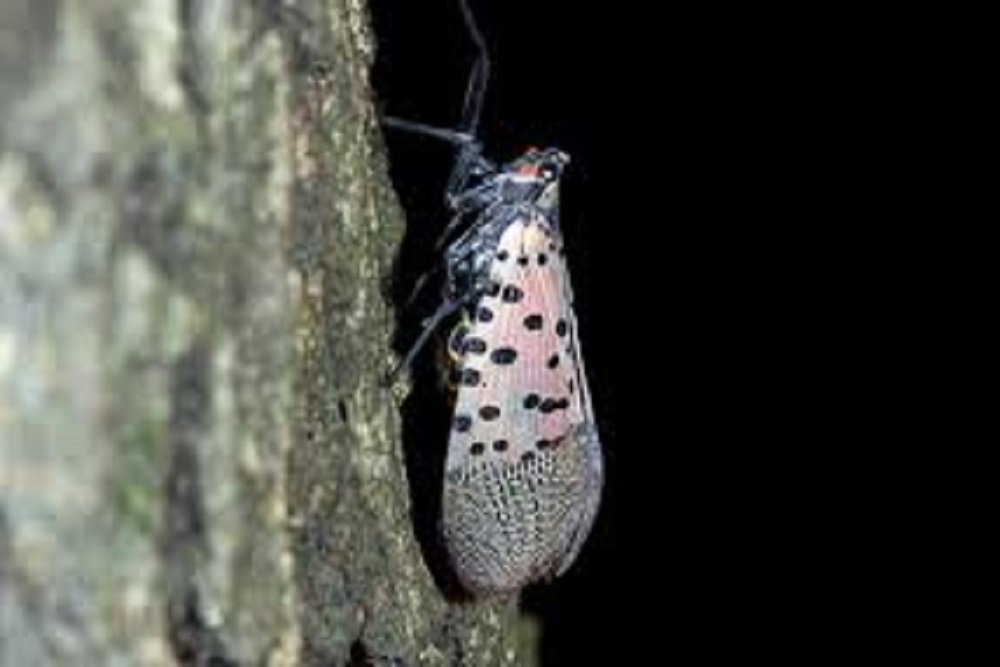Maryland Department of Agriculture issued the following announcement on Oct. 28.
The Maryland Department of Agriculture today issued a spotted lanternfly quarantine for all of Cecil and Harford Counties. This quarantine is effective immediately and will restrict the movement of regulated articles within the quarantine zone that contain the spotted lanternfly in any of its life stages, including egg masses, nymphs, and adults.
Examples of regulated articles include landscaping, remodeling, or construction waste; packing materials like wood boxes or crates; plants and plant parts; vehicles; and other outdoor items.
Following the department’s 2019 survey season, these two counties were found to have established populations of spotted lanternfly. The quarantine has been issued in an effort to control the spread of this invasive insect to other parts of the state. A map of the quarantine zone can be viewed here.
Businesses, municipalities, and government agencies that require the movement of any regulated item within or from the quarantine zone must have a permit. A permit can be obtained by taking a free online training course through PennState Extension. Upon completion of the course and an online exam, individuals will receive a permit.
Managers, supervisors, or employees of a business or organization operating in the quarantine zone must receive the approved training and pass the exam by at least 70% to demonstrate a working knowledge and understanding of the pest and quarantine requirements. Training of other employees, inspection of vehicles and products, and removal of living stages of spotted lanternfly must also be completed.
All spotted lanternfly permits for Virginia, Pennsylvania, New Jersey, and Delaware are transferable and valid throughout the region — meaning a permit from any of these states can be used in Maryland. Maryland is currently in the process of developing its own training and permitting system for spotted lanternfly.
Those living within the quarantine zone are encouraged to be vigilant in containing the spread of spotted lanternfly. The department has created a residential compliance checklist that is available for download on its website that educates residents on the lifecycle of the spotted lanternfly, and areas to inspect around the home.
The spotted lanternfly poses a major threat to the region’s agricultural industries as it feeds on over 70 different types of plants and crops, including grapes, hops, apples, peaches, oak, pine, and many others. Originally from Asia, the spotted lanternfly is nonnative to the U.S., and was first detected in Berks County, Pennsylvania in the fall of 2014. As a known hitchhiker, the spotted lanternfly has spread to 14 counties within Pennsylvania, and also has confirmed populations in Delaware, Virginia, and New Jersey.
This fall, the department’s Plant Protection and Weed Management Program partnered with the U.S. Department of Agriculture (USDA) to treat Ailanthus altissima for spotted lanternfly at multiple sites in the upper northeast corner of Cecil County, and along the northern border of Harford County. In total, 2,698 trees have been treated (2,403 trees in Cecil County and 295 trees in Harford County). The program continues to work with USDA Animal and Plant Health Inspection Service Plant Protection and Quarantine program, University of Maryland Extension and others to monitor the insect in Maryland
If you suspect you have found a spotted lanternfly, snap a picture of it, collect it, put it in a plastic bag, freeze it, and report it to the Maryland Department of Agriculture at DontBug.MD@maryland.gov. Dead samples from any life stage can be sent to the Maryland Department of Agriculture Plant Protection and Weed Management Program at 50 Harry S. Truman Parkway, Annapolis, MD 21401.
More information about the spotted lanternfly can be found on the department’s website. For questions related to the quarantine, permitting, or treatment, please contact that Plant Protection and Weed Management Program at 410-841-5920.
Download the department’s Spotted Lanternfly Quarantine Fact Sheet for more details about the quarantine.
Original source can be found here.





 Alerts Sign-up
Alerts Sign-up